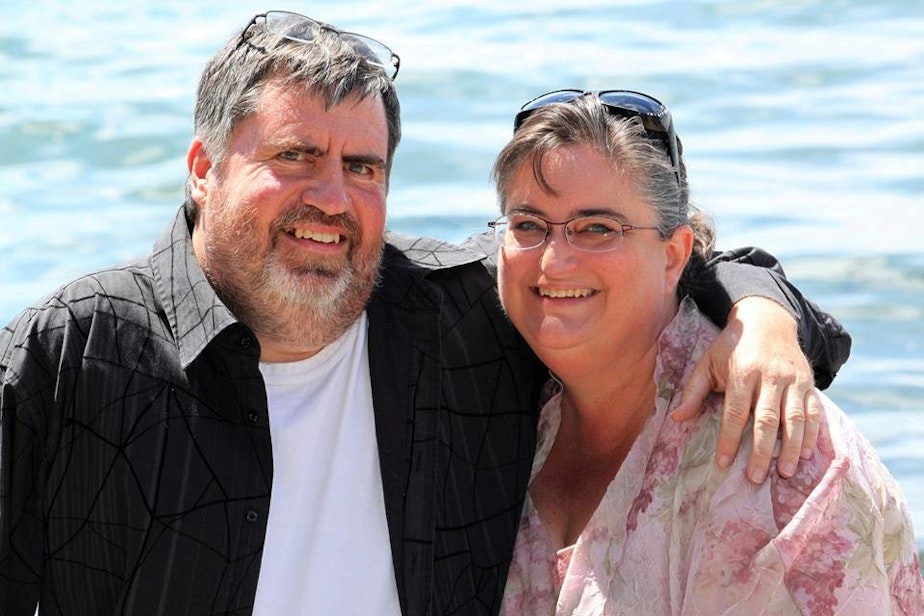Victim Of Cult Abuse Becomes Foster Mom To Give Back

Mary-Jeanne Smith was 13 when she ran away from home. She said she left to avoid an abusive environment.
“My parents had joined sort of a religious cult and there was a lot of physical, sexual and mental abuse,” she said.
After running away, Smith was placed in a foster home in the University District. She remembers the elderly woman who took her in was kind and put her at ease.
“She changed my life. She made my life better. She gave me the hope that has driven the choices that I’ve made in my life,” Smith said.
The number of licensed foster homes in Washington has dropped by nearly 20 percent since 2007. That means there are about 1,000 fewer homes available to kids in the foster care system.
Sponsored
Smith has been on both sides of this system. She's now a foster parent and works with the Foster Parents' Association of Washington State.
She said the decline in foster homes is a huge problem because kids in bad situations need a stable environment, just like she did.
That first foster house Smith went to was so overstretched that she had to sleep in a closet when she first arrived. But that was OK with her because she felt safe and cared for.
“It actually felt like a little safe haven to me at the time because I’d been through so much. And this woman was so kind and so nice,” Smith said.
Smith said she was there for 30 days before she was placed back at home. She said she experienced years of abuse before leaving at the age of 15.
Sponsored
“The social worker didn’t believe my side of the story about what was going on at home because it was really bizarre and my mother was a very exceptional liar," Smith said.
"But the thing that kind of kept me going was having had that 30-day reprieve where I was with this woman where she showed me a different way of life and what things could be like and it really gave me a lot of hope."
Patrick Dowd, director of the state’s Office of the Family and Children’s Ombudsman, said where kids go when they’re displaced from their family’s home makes a big difference.
“Not providing a child with an appropriate placement when a child enters care can be traumatic and disruptive,” Dowd said.
Dowd said the decline in the number of licensed foster homes in the state has meant an uptick in the number of kids going to placements that are less than ideal.
Sponsored
“Our office has seen an increase in the use of emergency temporary housing that is clearly not intended or designed for caring for children,” he said.
This includes kids staying in hotels or even Child Protective Services offices, according to Dowd.
He said they don’t know exactly why the number of foster homes is declining in Washington, but his office has heard that some foster parents feel overwhelmed and undercompensated.
“We also hear that some foster parents feel they’re not included as part of the team, if you will, in case planning for the child.”
To combat the decline, Dowd said there need to be greater efforts to retain and recruit foster parents. And that means addressing concerns of current foster parents.
Sponsored
“Foster parents that feel appreciated and supported are the best recruitment tool to bring more individuals into the system to assist these children,” he said.
Former foster kid Smith said she became a foster parent because she wants to give kids the same kind of hope her foster parents gave her.
“I always knew in the back of my mind that I wanted to be able to give back the way I’d been given to. I just felt like the stability I experienced in those homes is what gave me the strength to keep going, and to do better, and to be more.”
